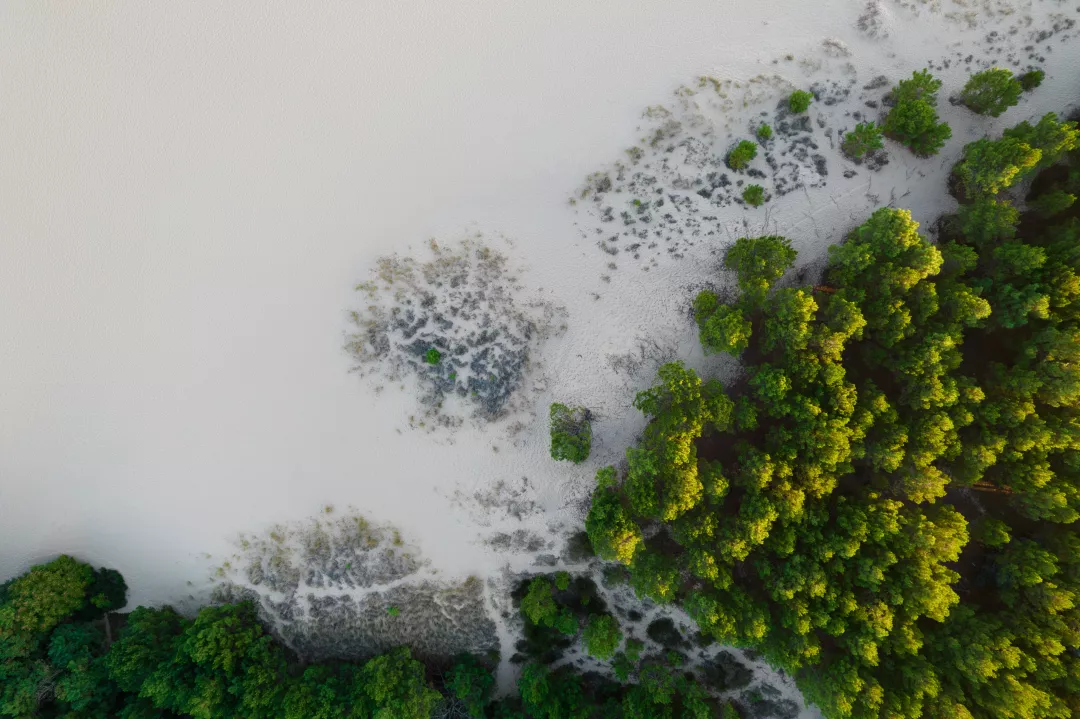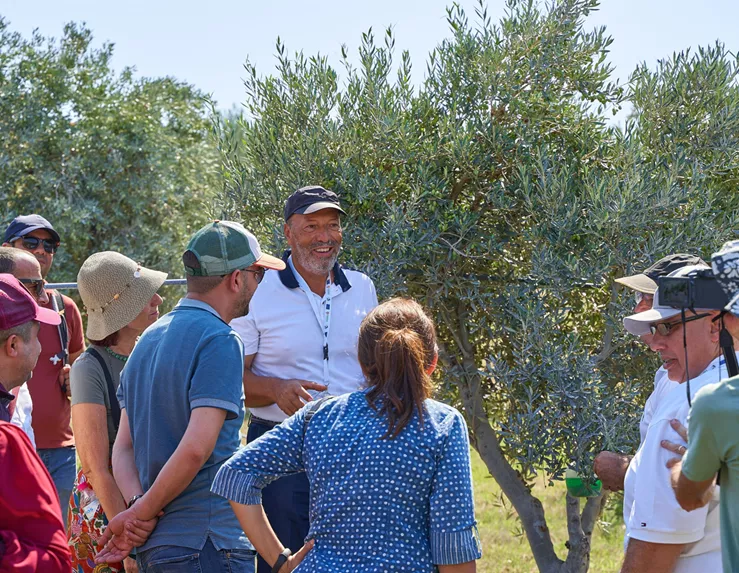Inspirational ideas: From deserted area to oasis of biodiversity
- Innovation, knowledge exchange & EIP-AGRI
- Agricultural Productivity
- Climate and Climate Change
- Environment
A 200-hectare area in the North Aegean islands of Greece which was suffering from desertification has been transformed into a thriving, healthy and productive ecosystem.

This inspirational idea is also available in a Slovak version. Translation courtesy of the National Rural Network Slovakia. Read more EIP-AGRI inspirational ideas in Slovak on the NRN website.
This project has transformed a 200-hectare area in the North Aegean islands of Greece which was suffering from desertification into a thriving, healthy and productive ecosystem. It now hosts 40,000 organic olive trees cultivated with environmentally-friendly practices, contributing to the regeneration of the local economy as well as biodiversity.
In these hilly areas with typically shallow soils, olive cultivation was traditionally the cornerstone of the islands’ agricultural economy. However, over the past 50 years, many of the rural landscapes in the islands have been abandoned and degraded. The gradual desertification of the areas is a result of unsustainable cultivation practices in combination with climate change impacts, mainly the lack of irrigation water and the extreme heat waves and flood events threatening these high slope areas with gully erosion.
The OL’EVE Family Estate is an olive farm situated in Sigri area, a sea-front peninsula in Lesvos Island, in the Aegean Sea. Antonios Tirpintiris along with his wife Foteini Tirpintiri and their team took over the old estate in the year 2000 with the objective to give the olive groves a new lease of life. “I have been away from my birthplace for several decades and when I decided to come back, I found a place that had nothing to do with my happy childhood memories and our family dreams. This has to change, I thought and that’s how it all started,” Antonios said. Today organic olives are harvested and transformed into high quality extra virgin olive oil on the estate, where they have established a state-of-the-art olive mill and bottling facilities.

As part of the regeneration, new terraces were created around the hills of the estate, and existing ones were restored. Amongst the older olive trees, young olive trees (local varieties) were planted. Besides olive production, the team decided to start producing honey, natural herbs, and to plant a large variety of tree species. Antonios said “We have created the right conditions to boost biodiversity on our farm by planting, along with the 40,000 olive trees, more than 10,000 figs, almonds, pomegranate and palm trees and by caring for the wetlands of the area.”
Nature-friendly cultivation practices are applied throughout the plantation to ensure environmental sustainability and the quality of products. These practices include minimum tillage, N-fixing legumes and green mulching, use of compost that is made of seaweed, organic livestock manure and organic ‘waste’ from the olive cultivation and the establishment of constructed wetlands for water management.
This sustainable approach to farm management has brought many benefits for the local environment, community and economy. The farm has contributed to the rehabilitation of biodiversity in the area, the restoration of soil health and flood control. It has created green job opportunities as well as cooperation and synergies with other local farmers and suppliers. Food-related and educational activities are organised for local visitors to raise awareness about the advantages of this type of production. “It also has a real impact on the climate, since the trees on the plantation counterbalance the carbon footprint of 2,000 people.” explains the hydrogeologist Eleanna Pana, one of the scientific and technical advisors of the farm.
The OL’EVE Family Estate was selected to be one of the five case studies of the MARA-MEDITERRA project – which is funded by PRIMA Programme, supported by Horizon 2020. This project is about safeguarding the livelihood of rural communities and the environment in the Mediterranean through the uptake of Nature-based Solutions as a response to land and water degradation. Along with agronomists and technical personnel, cultural non-profit association, neighbouring farmers, regional public authorities, and local society, OL’EVE Family Estate hosts the Greek Living Lab part of the project. The living lab aims to strengthen the regional AKIS system for the development and dissemination of novel agri-environmental models of olive cultivation in areas vulnerable to desertification.
“We have made great progress in the area, but we still have some way to go”. Antonios explains that there is still a lack of support for organic and diversified farm holdings and also the practices are quite labour-intensive and staff availability in the area is limited. He adds “Knowledge transfer mechanisms within and across borders, as well as flexible schemes of rural entrepreneurship support and governance could make the difference in the years to come”.
Further information
Contact:
Eleanna Pana: eleannapana@gmail.com
Antonios Tirpintiris: atirpintiris@falcon-sa.gr
More information:
- https://sigriolivemill.health/
- MARA-MEDITERRA project website
- https://www.facebook.com/MaraMediterra
- https://www.facebook.com/oleveproducts
- Videos
Photos from the OL’EVE Family estate